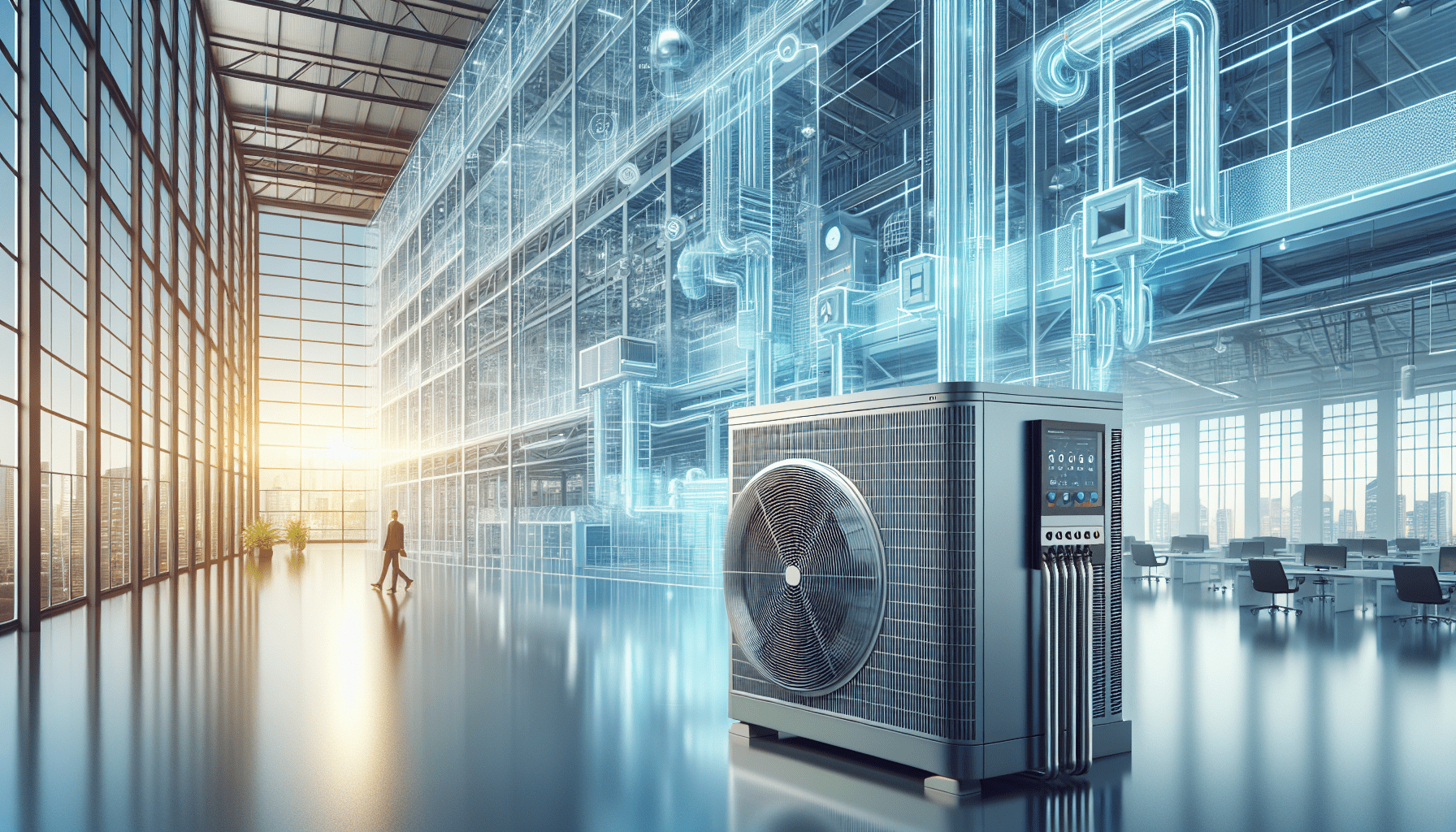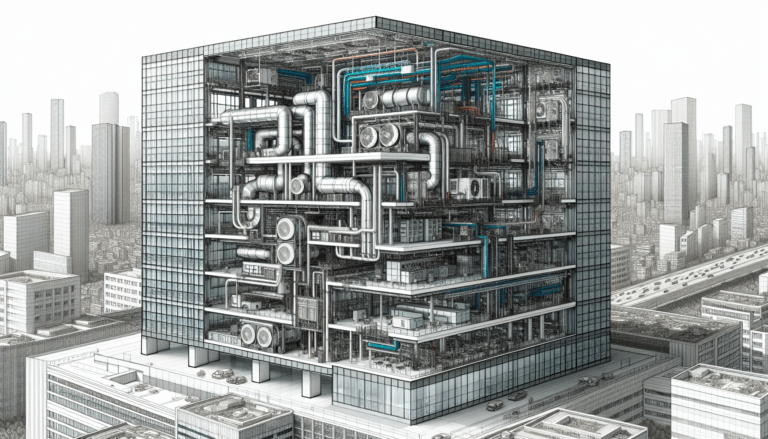

HVAC Services
Get Professional Repairs From The Area's Trusted HVAC Technicians. Ask About Our Services! We Offer Professional Heating & Cooling System Repairs And Guarantee Long-Lasting Results.
Got Question? Call us: (850) 678-2665Financing
Best Practices For Commercial HVAC Management
Discover key strategies for optimal HVAC management. From maintenance to energy efficiency, ensure year-round comfort in your commercial space with these expert tips.

Have you ever wondered how to ensure your commercial space stays comfortable all year round? The key lies in efficient HVAC management. Whether it’s the height of summer or the chill of winter, a well-maintained system can make all the difference. The challenge, however, often lies in understanding what practices lead to optimal HVAC performance. Let’s dive into the best strategies for managing your commercial HVAC systems.
Understanding HVAC Systems
Before jumping into management practices, it’s essential to grasp the basics of HVAC systems. HVAC, short for Heating, Ventilation, and Air Conditioning, encompasses multiple technologies that regulate indoor temperature and air quality. In commercial spaces, these systems tend to be more complex than residential ones due to the size and varied requirements of the buildings.
Components of a Commercial HVAC System
A typical commercial HVAC system comprises various components. These include heating units, air conditioners, ventilation systems, thermostats, and ductwork. Each serves a distinct purpose and must work harmoniously for optimal efficiency. Regular checks on these components can prevent issues and maintain smooth operations.
Regular Maintenance Is Key
Ensuring your HVAC system functions efficiently involves consistent maintenance. Plan regular inspections and tune-ups with a professional HVAC service provider. During these checks, technicians can identify potential issues, clean components, and make necessary repairs. This proactive approach prevents breakdowns and prolongs system lifespan.
Scheduling Maintenance Visits
Creating a maintenance schedule is crucial. Monthly, quarterly, and annual checks should align with the system’s operational demands. For instance, before the cooling and heating seasons, conduct a comprehensive inspection to ensure everything is functioning correctly. This prevents last-minute issues when the system is needed most.
| Maintenance Type | Frequency |
|---|---|
| Basic Checks | Monthly |
| Intermediate | Quarterly |
| Comprehensive | Annually |

Energy Efficiency Strategies
Energy costs can be a significant burden for commercial spaces. Implementing energy-efficient practices not only lowers bills but also supports environmental sustainability.
Optimizing Thermostat Settings
Smart thermostats are excellent tools for enhancing efficiency. Program them to adjust temperatures during off-peak hours or when the building is unoccupied. Maintaining a steady temperature within the recommended range reduces unnecessary energy consumption.
Upgrading to Energy-Efficient Equipment
Consider replacing outdated equipment with energy-efficient models. Modern HVAC systems offer advanced features that reduce energy use while providing better climate control. Although the initial investment may be high, the long-term savings justify the expense.
Addressing Indoor Air Quality
Maintaining good indoor air quality is another crucial aspect of HVAC management. Poor air quality can affect employee health and productivity, making it essential to ensure proper ventilation and clean air circulation.
Proper Ventilation
Ensure that your ventilation system provides adequate airflow throughout the building. Regularly change filters and check for blockages that could impair air distribution. Good ventilation minimizes pollutants and helps maintain a healthy indoor environment.
Air Purification Systems
Investing in air purifiers can significantly improve air quality. These devices minimize allergens, dust, and pollutants, making the air cleaner and safer for everyone.

Emphasizing the Role of Data
In today’s tech-driven world, data plays an essential role in optimizing HVAC systems. Using data analytics can help identify patterns and areas for improvement.
Implementing Smart Technology
Smart HVAC systems offer real-time data about system performance and energy use. These insights allow you to make informed decisions on where to make adjustments. For instance, sensors can detect when rooms are empty and adjust temperatures accordingly, saving energy.
The Impact of Staff Training
Even the most technologically advanced system won’t perform well without proper management. Training the staff to understand and handle HVAC operations is critical.
Conducting Regular Workshops
Organize training workshops for facility managers and maintenance staff. Familiarize them with the system’s components, common issues, and troubleshooting techniques. Their understanding can significantly aid in quick problem resolution and efficient management.
Outsourcing vs. In-house Management
Deciding whether to manage your HVAC system internally or through an outsourcing company can impact efficiency and cost.
Pros and Cons of Outsourcing
Outsourcing to an HVAC professional ensures expert handling and consistent maintenance. However, this can be costlier. In-house management can be economical but requires comprehensive staff training and resources.
Planning for the Future
Staying ahead in HVAC management means planning for future needs and potential system upgrades. This foresight includes system replacement timelines and anticipating technological advancements.
Lifecycle Management
Track the lifecycle of your HVAC equipment. Understanding when components near the end of their lifespan allows for budget planning and prevents system failures. Implement a replacement plan that aligns with your long-term goals.
Conclusion
Commercial HVAC management might seem challenging, but with the right strategies and practices, it becomes manageable and even simple. Regular maintenance, energy-efficiency initiatives, air quality management, and proper staff training are fundamental practices that enhance system performance. By focusing on these best practices, your commercial space can remain comfortable and efficient regardless of the season. Remember, an efficient HVAC system is not just about comfort—it’s a step toward sustainability and cost savings as well.
Want to Know More?
For more information or personalized advice, reach out to experts who specialize in HVAC systems. A professional can provide insights tailored to your specific needs and help you implement strategies that promote efficiency and comfort all year long.
Tempacure Heating and Air Conditioning
325 Cedar Ave S, Suite B
Niceville, FL 32578
(850) 678-2665
Tempacure HVAC
Remember, taking the time to manage your commercial HVAC system effectively can lead to long-term benefits for your business, your employees, and the environment.





